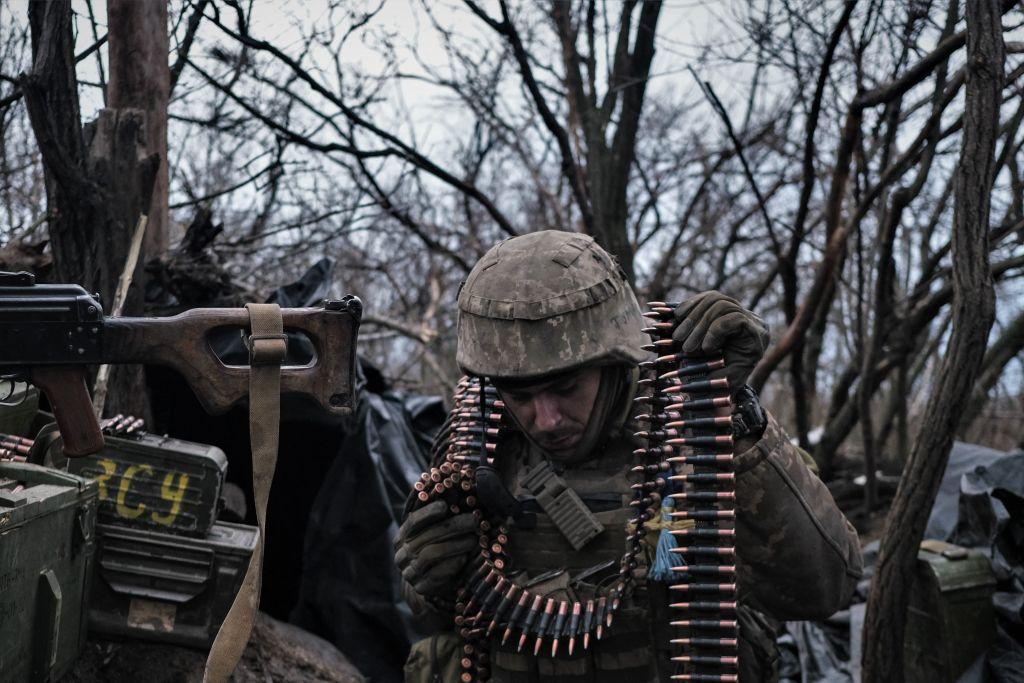
Ukraine has been forced into a high-intensity war where its freedom and national survival are at stake. To fight back and be able to push out the Russian invader, Ukraine needs not just political support and money. Crucially, it needs weapons and ammunition. Weapons without ammunition are useless.
Russia’s stocks of artillery shells, and their use, are much higher than Ukraine’s—and the price for this difference is paid in Ukrainian lives. We have said repeatedly that the defence of Ukrainian sovereignty is existential, for Ukraine and for the rest of Europe. We cannot want this goal without giving Ukraine the means to achieve it.
Since Russia launched its war against Ukraine, the EU has shown that it gets what is at stake and is ready to break taboos when the need arises. One year ago, we began to finance, for the first time ever, the supply of lethal military equipment to a country under attack. Then in the autumn we started to train Ukrainian soldiers on our soil, under the EU flag. We are on track to train 30,000 Ukrainian soldiers by the end of this year. Now we are taking another big step by working together to supply Ukraine with the ammunition it so urgently needs.
On 20 March, European leaders agreed to a three-track proposal that I put forward, together with Thierry Breton of the European Commission, to finance the urgent provision of artillery ammunition from existing stocks or pending orders, to jointly procure new artillery shells, and to work with the EU defence industry to increase production capacity to address our own needs and sustain our support for Ukraine.
In the past 20 years Europeans have reduced their investments in defence industrial capacity, which we now need to ramp up again because of the radically changed security environment.
Concretely, we aim to provide Ukraine with 1 million rounds of artillery ammunition within a year, using a total of €2 billion under the European Peace Facility. With a reimbursement rate of 50% to 60%, this new package will enable us to leverage roughly €4 billion.
This decision demonstrates the EU’s ability to act quickly when we need to, and it is proof that we remain determined to give Ukraine the means it needs for its legitimate self-defence. Like-minded partners play a key role in this collective effort. I thank Australia for its unwavering support to Ukraine’s defence. It has never been more vital to step up, and the EU and Australia have promptly answered the call.
This decision will raise the question of how giving ever more weapons can bring an end to this horrible war. The answer is that to defend itself and to end the war, Ukraine needs both weapons and ammunition—for as long as Russia keeps attacking and bombing Ukraine.
We, of course, like Ukraine, want peace. But we do not seek any kind of peace. We want a just and sustainable peace, based on the UN charter, where Russia withdraws its troops from all the territory of Ukraine that it currently occupies. This is also why we support President Volodymyr Zelensky’s peace formula.
In other words, how the war ends matters—not just that it ends per se with Russia making territorial and other gains from its war of aggression.
We also want accountability, and that is why the indictment by the International Criminal Court of President Vladimir Putin is important. He must pay for the war crimes he is responsible for, including the forced abduction of so many children from Ukraine.
In this war, history and justice are on the side of Ukraine. But we need to accelerate the march of history. Our military support and our decision to buy ammunition together serve the cause of a just peace in Ukraine. It is the right decision and a necessary one.